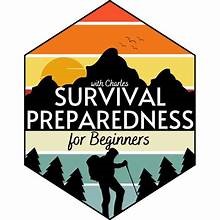

Prepping is about being ready for everyday problems, normal emergencies, and significant events that can disrupt our lives. Whether it’s power outages, snowstorms, hurricanes, or even the stomach flu, being prepared means we don’t need to panic when bad things happen. We can ride out the problems from the comfort of our own homes.
For those just getting started, progress comes one step at a time.
Here are 50 beginner survival tips every prepper should know.
1. Get Out Of Debt
A financial crisis is one of the most likely disasters we might face. Whether it’s deflation, like the Great Depression, or hyperinflation due to excessive money printing, having a lot of debt puts us in a vulnerable position. Avoid taking on massive debt in the hope it will be wiped out.
2. Build An Emergency Fund
Before tackling debt, save $1000. Once out of debt, save at least another 3 months’ worth of income. Start immediately, and aim to lower your bills to facilitate this.
3. Get A Bug Out Bag
Certain disasters might force us to relocate. A well-prepared bug out bag ensures we’re ready for such scenarios.
4. Store Some Water
No one can survive more than 3 days without water. Make water storage a top priority.
5. Learn To Garden
Disasters could last longer than our food cache. Gardening is a valuable skill that allows us to sustain ourselves and trade with others.
6. Gather Important Documents
Keep birth certificates, house deeds, driver’s licenses, marriage licenses, insurance policies, passports, social security cards, and vehicle titles safe. Make copies, store them in waterproof bags, and include them in your emergency supplies.
7. Create A Survival Library
We can’t learn everything beforehand, so having survival books or printed articles is crucial for reference when the power is out or the internet is down.
8. Learn First Aid
A first aid kit is useless if we don’t know how to use it. Taking a first aid class can mean the difference between life and death.
9. Research Your Area
Understand the specific risks in our location, whether natural disasters, chemical transport routes, or nearby prisons. Prepare accordingly.
10. Plan Your Evacuation Route
Know where to meet loved ones and the best routes out of town. Also, plan how to get home during a disaster.
11. Refill Your Gas Tank When It’s Half-Empty
Frequent stops are better than being stuck with an empty tank during an emergency.
12. Conduct Disaster Drills
Regular drills reduce panic during real emergencies. Make them fun and educational for the whole family.
13. Add To Your Food Cache Every Week
Buy extra non-perishable items during grocery shopping. Over time, this builds a substantial food supply.
14. Visit Your Neighbors
Establishing relationships with neighbors increases the likelihood of mutual help during emergencies.
15. Buy Used Supplies
Look for deals at flea markets, on Craigslist, and in local yard sale groups. Quality supplies can often be found second-hand.
16. Don’t Tell People About Your Plans
Keeping our survival supplies private reduces the risk of being targeted during a crisis.
17. Start Exercising
Physical fitness is crucial for survival. We need to be able to walk long distances and carry heavy objects.
18. Learn To Purify Water
Practice various water purification methods to be prepared for any situation.
19. Put a 72-Hour Kit In Your Car
Given how much time we spend away from home, having emergency supplies in our car is essential.
20. Store Some Powerless Entertainment
Books, puzzles, and games that don’t require batteries are crucial for maintaining morale during long-term emergencies.
21. Get Ready For Cold Weather
Ensure we have adequate blankets, coats, and other winter survival items.
22. Rotate Your Food
Regularly check and rotate food supplies to prevent waste.
23. Store Foods You Like
Only store food we enjoy eating to avoid unnecessary discomfort during emergencies.
24. Learn More Survival Skills
Focus on practical skills like fire building, water purification, and first aid, as well as barterable skills like car repair and gardening.
25. Go Camping With Friends/Family
Camping is a fun way to practice survival skills.
26. Get Some Good Multipurpose Tools
Invest in high-quality multipurpose tools and devices, like a flashlight with a built-in radio.
27. Learn How To Hunt And Fish
Knowing how to clean and butcher animals is as important as knowing how to hunt and fish.
28. Don’t Be Wasteful
Reuse items like plastic bottles and glass jars. Resourcefulness is key in survival situations.
29. Learn To Cook Without Power
Practice cooking methods that don’t rely on modern appliances.
30. Relax
Maintaining a calm demeanor helps us make better decisions. While preparedness is crucial, it’s also important to live life and enjoy the present.
31. Take Care Of Your Physical Health
Regular check-ups prevent minor health issues from becoming major problems during emergencies.
32. Weatherize Your Home And Take Care Of Major Repairs
Ensure our home is safe, warm, and secure by completing necessary repairs and weatherization projects.
33. Keep Your Vehicle In Good Shape
Regular maintenance ensures our vehicle is ready for emergencies.
34. Keep Repair Supplies Handy
Having extra home repair supplies on hand allows us to quickly address issues that arise.
35. Keep Extra Medication On Hand
Ensure we have extra life-sustaining and over-the-counter medications.
37. Invest In Livestock
Small livestock like chickens, ducks, or quail can provide a steady food source.
38. Make A Plan For Your Pets
Prepare for our pets’ needs during emergencies, including food and evacuation plans.
39. Invest In Solar
Small solar gadgets can provide power for lights and chargers during outages.
40. Plant A Food Forest
Establishing a food forest with fruit trees, berry bushes, and perennials provides a sustainable food source with minimal maintenance.
Foraging and Wild Food
41. Learn To Forage
Identify edible plants in our area to supplement our food supplies.
42. Get A Generator
A generator provides power during outages, ensuring we have light, refrigeration, and water.
43. Stock Up On Toilet Paper
Keep extra hygiene supplies to avoid shortages during emergencies.
44. Keep Your Batteries And Electronics Charged
Ensure our flashlights, lanterns, and electronic devices are always ready for use.
45. Maintain Woodstove, Fireplace, and Chimney
Regular cleaning and maintenance prevent issues when we need them most.
47. Teach Your Kids
Involve children in preparedness activities to build their confidence and skills.
48. Keep Your Preps Organized
Organize supplies so we can find what we need quickly during emergencies.
49. Store Your Preps Safely
Consider environmental risks and store supplies in safe, secure locations.
50. Practice A Can-Do Attitude
A positive attitude helps us stay calm and think clearly during emergencies.
Bonus Tip: Incorporate Preparedness As Part Of Your Everyday Life
Preparedness should be an ongoing process integrated into our daily routines. By consistently rotating food storage, maintaining tools, and staying vigilant, we ensure that we’re always ready for whatever the future holds. Keep living life, but always with an eye on preparedness.